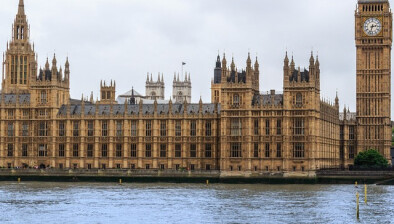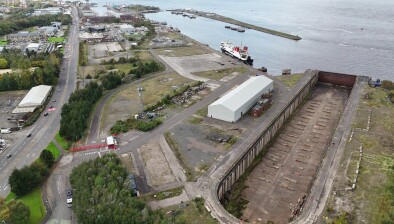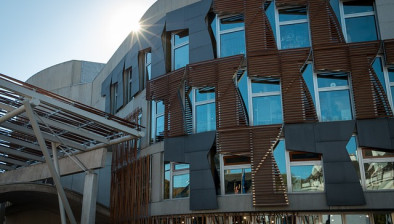Scottish Budget: £4bn infrastructure investment for next year

The Scottish Government has revealed that around £4 billion is to be invested over the next year in infrastructure as part of its Draft Budget for 2016-17.
The investment in house building, transport and digital links will include £1bn for road and rail infrastructure and £90 million for affordable housing.
The figure also includes the government’s taking forward of the ambitious programme of revenue funded investment in health, schools and transport, and addresses the budgeting implications of recent changes to EU statistical classification of private and public boundaries for the government’s programme of revenue-financed infrastructure investment. Following the ONS review of updated EU budgeting guidelines on the balance of public and private sector control and risk and reward in Scotland’s NPD funding model, a number of projects are now being classified to the public sector for budgeting purposes.
Speaking in Parliament yesterday, deputy first minister John Swinney detailed:
The deputy first minister also committed to deliver the new Forth Replacement Crossing in line with the advanced timetable previously advised, the importance of which is highlighted by the temporary closure of the Forth Road Bridge for essential repairs.
Infrastructure secretary Keith Brown said: “This is a Budget to improve infrastructure and increase house building by a total of some £4bn, and as such it as a Budget to invest in protect and extend our economic recovery.
“We are committing to an increase of £90m in affordable housing supply compared to 2015-16 – and a total investment of around £690m in housing. This will support our overall commitment to delivering 50,000 new affordable homes by 2020-21.
“Transport infrastructure is also a critical part of this Budget. There will be over £1bn invested in roads and transport projects, including the Aberdeen Western Peripheral Route and the electrification of the Glasgow-Edinburgh rail line.
“Alongside that of course is the completion of the new Forth Replacement Crossing. The current temporary closure of the Forth Road Bridge for essential repairs has served to highlight the need for the new Crossing and I am pleased to say this Budget will allow it to progress towards completion in line with the latest timescales previously advised.
“Digital connectivity is another key plank of our strategy to harness the opportunities of digital across all aspects of Scottish life and we are investing £130m to help meet our 95 per cent next generation broadband target.
“We have long placed considerable emphasis on public sector investment in infrastructure to stimulate economic recovery and that is what has driven much of the post-recession growth in Scotland. This Budget supports that continued growth through improving infrastructure and investing in housing to ensure all Scots can benefit from these opportunities.”
The finance secretary also introduced a 3 per cent supplement for second home purchases over £40,000.
To be paid in addition to Land and Building Transaction Tax (LBTT), the supplement brings Scotland in line with recent English changes and will come into effect from April 2016. The move is estimated to raise between £17m and £29m in 2016/17. Individual LBTT rates and bands remained unchanged.
A number of organisations sounded warnings of the potential impact the supplement for second home purchases will have on the Private Rental Sector (PRS), particularly in light of the ongoing reforms from the Private Housing (Tenancies) Bill.
Homes For Scotland welcomed the significant increase in affordable housing investment next year but emphasised that delivering the Scottish Government’s ambition in this area was highly dependent on a strong private sector given its direct contribution through planning policy.
Philip Hogg, chief executive, said: “Whilst providing more ‘affordable housing’ is a key element in tackling the country’s chronic undersupply of housing, this alone will not address Scotland’s housing crisis or meet the diverse needs and aspirations of all those living and working in Scotland.
“Scotland needs a balanced housing policy which places equal emphasis on having enough homes of all tenures, recognising the economic and social benefits that this would bring for communities throughout the country. We therefore hope that, like other administrations in the UK, the Scottish Government will allocate sufficient funding for the next phase of the hugely popular Help to Buy scheme and ensure it is as accessible to as many purchasers as possible in order to meet the demand that clearly exists.
“We also hope that the details of the budget will include assistance for SME home builders and action to facilitate the provision of infrastructure for housing.
“In respect of the announcement of a three per cent supplement on Land and Buildings Transaction Tax for additional residential properties such as buy to let properties and second homes over £40,000, we are wary of what impact this may have on the amount of rental stock available to tenants, particularly given the changes already proposed in the Private Tenancy Bill which is currently going through Parliament.”
Ed Monaghan, chief executive of Mactaggart & Mickel Group, added: “The government’s decision not to alter the rates of Land and Buildings Transaction Tax (LBTT) paid on top tier properties is disappointing. The introduction of the new tax system earlier this year, although favourable to first time buyers, has slowed the market for those looking to purchase properties in excess of £325,000.
“Housing has always been an important pillar to encourage positive economic growth and has in the past provided significant revenue. Time will tell if the government’s £381m revenue budget for 2015/16 will be met.
“Although the introduction of new 3 per cent levy on LBTT for second homes has been introduced to make opportunities for first-time buyers to enter the market as strong as possible the lack of initiatives like ‘Help to Buy’ are still being felt. It is once again disappointment that the government have not matched the UK and Welsh governments recent announcement on maintaining Help to Buy, and further reinforces the danger of creating a two speed housing market.
“The Scottish Government increased investment of £90m for affordable housing was welcomed. This will help to drive employment and growth in the construction industry and go part of the way of addressing the Nation’s housing shortage.”
Sarah Speirs, director RICS in Scotland, said: “We welcome the investment in housing supply of around £690m, as this should be every political party’s key priority now, and during the election.
“The 3 per cent land and building transaction tax levy on additional properties – whether they are a second home or buy-to-let investment – could lead to a more properties being available for sale and rent where affordability and supply is constrained – particularly in the hot spots of Edinburgh, Glasgow and Aberdeen.
“Infrastructure unlocks economic growth, provides jobs, and, importantly, makes Scotland more internationally competitive and an attractive investment arena. The announcement of £1bn in roads and transport projects, including the electrification of the Edinburgh-Glasgow rail line, demonstrates the continued, and welcome, commitment from the Scottish Government. However, in order to maximize on this growth, we must ensure Scotland has the necessary construction skills. Scottish Government can address this shortage, post May election, by introducing a Construction Skills Programme to include building experience within the industry in the short term, and recruiting more people to impact the medium and long term.
“Finally, RICS welcomes the increased investment in digital connectivity. This needs to directed to rural Scotland as we recognise the need to develop and encourage rural businesses, and to improve business start-up rates because of their importance to the rural economy.”
John Blackwood, chief executive of the Scottish Association of Landlords (SAL), said: “Landlords will be disappointed and frustrated by the decision by the Finance Secretary this afternoon to copy the policy of the Conservative Party at Westminster and punish those who choose to invest in the PRS Scotland.
“The supplementary tax on the purchase of second homes will have a huge impact on the buy-to-let market and exacerbate an already serious shortage of properties in many areas. We firmly believe that the biggest losers from today’s statement will be tenants who will now find it even harder to get the accommodation they want at a price they can afford.
“As laid out by the Commission on Housing and Wellbeing, landlords have a major part to play in solving Scotland’s housing crisis precisely because of the investment they can provide at all levels of the market. The Scottish Government should be encouraging more investment by responsible landlords whilst ensuring the highest standards are met, instead of seemingly doing everything it can to dissuade them.
“Reducing investment will only lead to less being spent on improving housing stock across Scotland and create a space for rogue landlords and letting agents who operate outside of the high standards that the overwhelming majority of the sector are rightly held to.”
Members of the Existing Homes Alliance Scotland voiced disappointment with the Draft Budget for “failing the cold homes challenge”.
Alan Ferguson, chair of The Existing Homes Alliance Scotland, said: “Just a day after we learnt that there has been no progress in reducing the 35 per cent of Scottish households living in fuel poverty, the draft budget for ending cold homes is less than was available this year. This fails to reflect the government’s commitment to a National Infrastructure Priority that will create ‘transformational change’ in improving the energy efficiency of Scotland’s homes – making our housing fit for a low carbon Scotland.
“The evidence is clear – no other investment can do so much, particularly in a tight budget situation, to cut energy bills for the fuel poor, create 8-9000 jobs all over Scotland, reduce climate emissions and improve physical and mental health – a 2:1 benefit to cost ratio.”

















